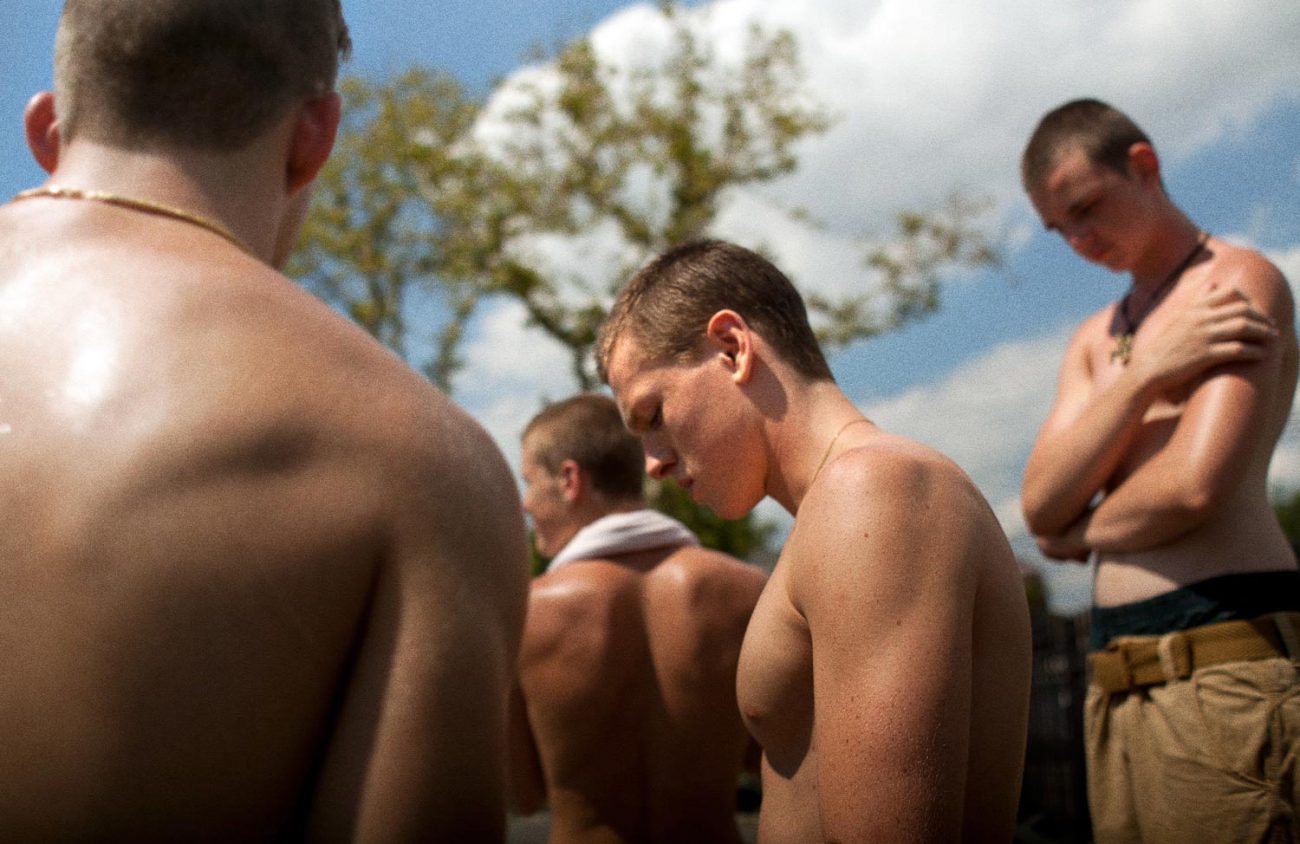Beach Rats is a lot of things in one film: beautiful, ominous, crushingly sad, tender, lonesome, scary, new and yet too familiar. Its contradictions are many, but central among them is the way it expands cinematic New York by showing us a part of it that feels like a lonely small town.
Frankie (Harris Dickinson, who I’d never have guessed was a Brit) has a face Captain America might envy. With a pack of friends, he drifts through summer days, avoiding his dying father, his growing-up sister, his strained mom. He meets a girl under the fireworks exploding at Coney Island; she’s sexually aggressive, and he’s … unsure.
After his father dies, Frankie gets more sure — maybe — and starts meeting the guys he finds online. He doesn’t know what he likes, he tells them. But he’s starting to figure something out.
Beach Rats sometimes feels like a documentary, like the camera is just following these guys around, waiting for something to happen. They don’t say a lot; theirs is a language of grins and jeers, roughhousing and handball games.
Hittman and her cinematographer, Hélène Louvart, frame these young men so that you can’t help but be aware of their physicality: naked torsos, strong hands, jutting jaws. They’re lanky but taut; something is always about to happen, even if it almost never does.
Frankie is always hiding some part of himself, whether behind a cocked baseball cap or an anonymous encounter. Hittman finds Frankie’s uncertainty, his vulnerability, in his wide eyes and downturned face; he’s kind of a gentleman and kind of a pill-stealing jerk, a post-high-school drifter whose path is a muddle in every direction.
Beach Rats builds toward conflict; there’s a thread of potential violence that Hittman locates in the way the four young men fill narrow hallways, or in their hands, loose and ready. But is it just the coiled power of muscular young bodies, or does that threat of violence hover because we’ve come to expect it from a cinematic narrative about a closeted young man?
I was so certain about where this story was going that I watched part of the final act with my hands over my face, like it was a horror movie. And it is, in a way. Beach Rats subverts several tropes of summer-romance films: the screwing around, the uncertain sex, the meet-cute under the fireworks.
It’s not a coming of age film; that would require something like resolution. Frankie’s path is aimless but questing, and Dickinson gives a gentle, meandering performance, somehow both nuanced and expressionless within a single scene.
But can a film be moving and tired, graceful and trope-addled? Can it exist as a gracefully directed piece of art and simultaneously part of a worn-out cultural trend in which tragic gay figures exist primarily in ambiguous tales with little hope and less future?
As an exploration of toxic masculinity, a rarely seen side of New York, a teen’s uncertainty, Beach Rats works beautifully, up to a point — but you can’t take it out of the cultural context in which it appears. (Broadway Metro)
